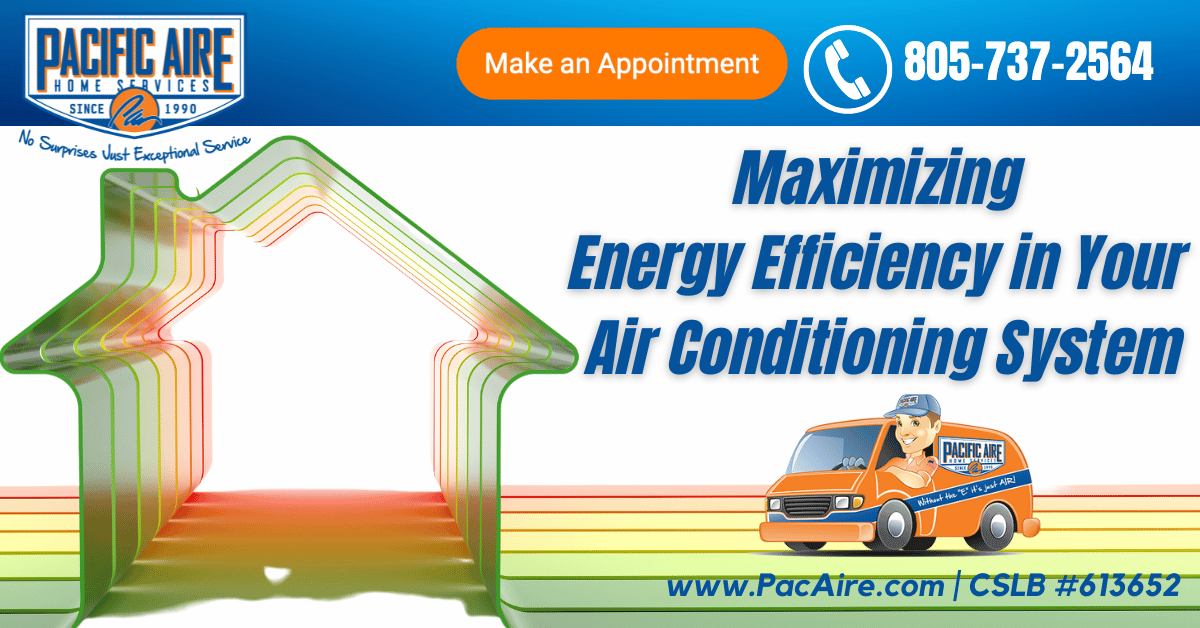A Heating, ventilation, and air conditioning system (HVAC) is essential for maintaining air quality and a comfortable temperature in our homes. However, they can also be significant energy consumers, contributing to high utility bills and a larger carbon footprint. By maximizing the energy efficiency of your HVAC system, you can reduce your energy costs and environmental impact. In this blog post, we’ll explore ways to make your HVAC system more efficient, including upgrading to a high-efficiency furnace, installing a programmable thermostat, and improving insulation and ventilation.
1. Upgrade to a High-Efficiency Furnace
One of the most effective ways to increase your HVAC system’s energy efficiency is by upgrading to a high-efficiency furnace. These furnaces have a higher Annual Fuel Utilization Efficiency (AFUE) rating, which means they convert more fuel into heat. Look for ENERGY STAR certified models, which have been independently tested and verified to meet strict energy efficiency standards.
2. Install a Programmable Thermostat
A programmable thermostat allows you to set different temperatures for different times of the day, helping you save energy by automatically adjusting the temperature when you’re not at home or when you’re asleep. Some models even come with smart features, such as learning your schedule and adjusting temperatures accordingly or allowing you to control the thermostat remotely with a smartphone app.
3. Improve Insulation and Ventilation
Proper insulation and ventilation are crucial for an energy-efficient home. By insulating the walls, attic, and floors of your home, you can mitigate heat loss in winter and heat gain in summer. This not only promotes the efficiency of your HVAC system but also contributes to energy conservation.
Don’t forget to seal any gaps around windows, doors, and electrical outlets to prevent drafts. In addition to insulation, ensure that your home has adequate ventilation to maintain good indoor air quality and prevent moisture-related problems.
4. Regularly Maintain Your HVAC System
Proper maintenance is key to keeping your HVAC system running efficiently. Schedule regular tune-ups with a professional technician, who can clean and inspect your system, identify potential issues, and make necessary repairs. In addition, replace or clean air filters at least once every three months to maintain optimal airflow and improve indoor air quality.
5. Upgrade to Energy-Efficient Windows
Old, single-pane windows can be a significant source of heat loss and gain, putting extra strain on your HVAC system. Consider upgrading to double- or triple-pane windows with low-emissivity (low-E) coatings to reduce heat transfer and increase energy efficiency.
6. Install a Zoned HVAC System
A zoned HVAC system divides your home into separate temperature zones, each controlled by its thermostat. This allows you to set different temperatures for different areas of your home, providing more precise temperature control and reducing energy waste. Zoned systems can be particularly beneficial in larger homes or homes with multiple levels.
7. Use Ceiling Fans to Supplement Your HVAC System
Ceiling fans can help distribute conditioned air more evenly throughout your home, reducing the strain on your HVAC system. In the summer, use your ceiling fan in conjunction with your air conditioning to create a wind-chill effect, allowing you to raise the thermostat by a few degrees without sacrificing comfort. In the winter, reverse the direction of the fan to push warm air down from the ceiling, helping to maintain a comfortable home temperature.
8. Keep A Record Of Your Usage Patterns
There are a number of smart features on air conditioning units. They are designed to work in your home environment. Most homeowners, however, assume air conditioning units are indestructible and overuse them.
Even without intending to, homeowners may inadvertently impose a high demand on their air conditioning units. Track your usage habits to see what you are demanding from your central air.
- At what temperature is the house set and how hot is it?
- When do you lower the thermostat for central air?
- How often does the air conditioning unit run? What is the duration?
It only takes a few days of journaling to discover how you really use your central air conditioning.
By implementing these energy-saving tips, you can maximize the efficiency of your HVAC system, resulting in lower energy bills and a reduced environmental impact. Remember that investing in energy-efficient upgrades and regular maintenance will not only save you money in the long run but also contribute to a more comfortable and healthier living environment.
Visit https://bit.ly/pacificaire_acreplacement or schedule a call with the experts at 805-737-2564 to upgrade to a sustainable and better alternative for your home.


